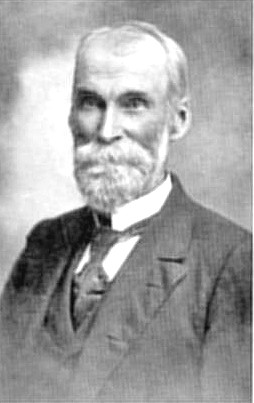Walter Kittredge facts for kids
Walter Kittredge (born October 8, 1834 – died July 8, 1905) was a famous American musician and songwriter. He wrote over 500 songs during his life. Many of his songs were about important topics like ending slavery and the American Civil War. His most famous song is "Tenting on the Old Camp Ground."
Contents
Early Life and Musical Beginnings
Walter Kittredge was born in Merrimack, New Hampshire. He was the tenth of eleven children in his family. His father, Eri Kittredge, was a farmer and owned a brickyard. Walter helped his father when he was not in school. He went to Merrimack Normal Institute and finished his studies in 1851.
Walter was a very talented musician. He taught himself to play several instruments. These included the seraphine and melodeon, which are types of organs. He also played the violin. Walter first wanted to be a singer and an actor. When he turned 21, he started touring by himself. He traveled to nearby areas with his melodeon. He would sing songs and perform recitations.
The next year, he began touring with the Hutchinson Family. They were a well-known musical group. This partnership lasted for 20 years. During this time, Walter started writing his own songs. By 1862, he had written many songs. He was also becoming well-known. He then published his book called Union Song Book. It included many of his popular songs.
"Tenting on the Old Camp Ground"
In 1862, Walter Kittredge was called to join the American Civil War. However, he did not pass his physical exam. His family then paid for someone else to take his place. Soon after this, he wrote his most famous song. It was called "Tenting on the Old Camp Ground." People also knew it as "Tenting Tonight." This song was sung by soldiers on both sides of the war. It is still known around the world today.
Walter wrote this song in just one night in 1863. He had just returned from visiting the Hutchinsons. He first offered the song to a publisher in Boston. His name was Oliver Ditson. Walter offered it for $15, but Ditson said no. A few months later, Ditson was looking for a patriotic song. He then bought Walter's song. Ten thousand copies of the song were sold in the first three months. The song was so successful that its earnings in 1897 were higher than all previous years.
Supporting Important Causes
Walter Kittredge was a strong supporter of important causes. He believed in abolitionism, which meant ending slavery in the United States. He also supported the temperance movement. This movement worked to reduce or stop the use of alcohol.
Walter performed at several big events. He sang at the 1866 National Union Convention. He also performed at the 1876 Centennial Exposition. This was a large world's fair. He also appeared at the 1893 Columbian Exposition. Walter was very popular with groups of war veterans. He was made an honorary member of Hawaii's Kauai Kodak Club. He was even invited to visit Hawaii.
Later Life and Legacy
Walter Kittredge married Annie E. Fairfield in 1861. He passed away in 1905 in Merrimack, New Hampshire. His personal collection of items is kept at the New Hampshire Historical Society. This collection includes his melodeon. A special plaque honoring him hangs in the New Hampshire State House.
Selected Compositions
Walter Kittredge wrote many songs throughout his career. Here are a few examples:
- No Night There (1874)
- The War Will Soon Be Over
- When They Come Marching Home (1864)
- Make My Grave in the Lowland Low (1865)
- Scatter the Flowers Over the Blue and Gray (1889)
- Let's Sing Again the old War Songs
Some of his songs were published in his Union Song Book, including:
- Liberty and Union
- As We Journey On Together
- The Red, White, and Blue
- Washington
 | Ernest Everett Just |
 | Mary Jackson |
 | Emmett Chappelle |
 | Marie Maynard Daly |


